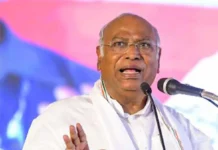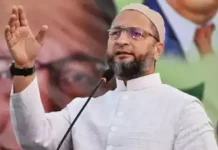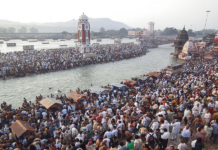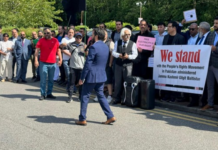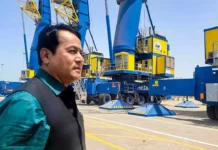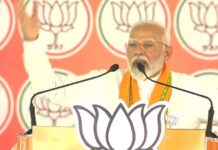
MALE: Terming the controversial GMR airport project here in Maldives as a “bad contract”, President Mohammed Waheed today said it was signed “conceivably under dubious conditions” by his predecessor Mohammed Nasheed.
He also reacted strongly to India’s concerns about developments in his country saying, “there is no reason to be concerned, since the country is fully functional and operational”.
In an interview to PTI here, the President said, “what is irresponsible is for Mr Nasheed to sign a contract against the wishes of the parliament. The demand to reclaim the airport is stemming from the fact that the agreement was not a responsible business agreement where both parties benefit.
“This agreement was signed during the previous government conceivably under dubious conditions. So it’s not an issue with GMR, it’s an issue of a bad contract.”
He was responding to a question whether the demands of his coalition parties to reclaim the project were irresponsible as alleged by his predecessor Nasheed.
Hassan also said that under the current agreement Government has to pay USD 1.5 million to GMR each month which is “not affordable to the Government of Maldives”.
In 2010, Indian infrastructure major GMR had entered into a concession agreement with Maldivian government under the then President Nasheed to upgrade and manage Ibrahim Nasir International Airport (INIA) for a 25-year period.
The USD 500 million project ran into rough weather following country-wide protests by coalition of opposition political parties which had came to power after the controversial ouster of democratically elected Nasheed’s government in February this year. The parties want to reclaim the airport from GMR alleging that it was an “illegal” agreement signed by Nasheed which did not have the consent of the Parliament.
The criticism of the airport project created a diplomatic row last week when President’s spokesperson Abbas Adil Raza, in a protest rally here, alleged that Indian High Commissioner D M Mulay was acting hand-in-gloves with GMR and demanded that he should go, once GMR is made to leave.
Downplaying the controversy, the President said, “The new constitution gives to all citizens the right to express one’s free will. Sadly, Mr Abbas’s statements reflect only his personal opinions; he said it in his personal capacity. The government has expressed its regrets even though they are his personal remarks”.
Concerned over the political instability in Maldives, India had issued a press statement last month asking it to ensure a “propitious” climate for foreign investments.
“Maldives will welcome any investment from India, we want more business with India, especially more Indian shares of our main tourist market,” the President said.
He also blamed supporters of Nasheed for spreading false allegations about the rise of radical Islam in the island country which is dependant on tourism.
“Maldives is one of the most diverse and socially moderate countries in the world. Yes, we are a 100 per cent Islamic country, and that’s what we have been for centuries.
Maldivians are moderate Muslims not extremists,” he said.
President Hassan succeeded Nasheed in February 2012 through a controversial transfer of power.
Asserting that he had facilitated a calm and conducive environment for the Majlis (Maldivian Parliament) to function, President Hassan said the election would take place as scheduled in November, 2013. -PTI

